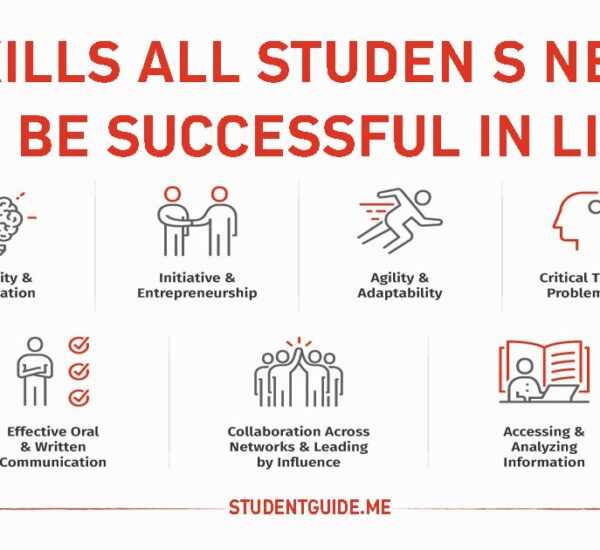Full scholarships are the holy grail of funding opportunities, covering just about everything for the full three to four years of college. Your tuition and living costs will be covered by the provider, leaving you free to focus on your studies and social life without worrying about money. Sounds great right?
Unfortunately, there are not many of these dream scholarships out there. Full scholarships are rare and those that are available are very competitive. However, that doesn’t mean you shouldn’t apply – read on to find out how to increase your chances of receiving one of these prestigious grants.
What Is The Difference Between Grants And Scholarships?
Grants and scholarships share a common characteristic: they are both “gift aid.” This is money that does not need to be paid back.
Grants are generally awarded based on financial need, such as the federal Pell Grant for low-income students. Need-based grants are awarded at the federal, state, or university level.
Scholarships, however, are generally awarded on the basis of merit, whether for academics, athletic ability, or a specific talent.
While some private scholarships also consider financial need, such as the Jack Kent Cooke Foundation College Scholarship Program, there is usually a merit component.
Private grants are often awarded by private foundations, nonprofit organizations, for-profit corporations, or philanthropists.
How to Find Scholarships For Study Abroad
First things first, where are you going to find full scholarships? Your first port of call should be the official website of your chosen university, as they may offer their own funding opportunities for students of your location or discipline, or possibly list external scholarships you can apply for.
In addition to your university, you can check out websites like https://opportunityportal.info/ or FastWeb.com, which lists funding opportunities in different study destinations, subject-focused scholarships, and targeted scholarships. to specific groups. of students (for example, African students).
Best Sites for International Scholarships
- Opportunity Portal
- Federal Student Aid
- BestColleges
- College Board
- Fastweb
- CareerOneStop
- Scholarship America
- Peterson’s
- Unigo
- Chegg
- Cappex
What Kind Of Scholarships Are There For College
The right scholarship can put a college student on the path to success. Scholarships provide much-needed financial aid, as well as a degree of prestige, for the distinguished student.
It’s a common misconception that scholarships are only available to students with the highest GPA or most impressive athletic record.
There are scholarships for all types of students. The key is knowing what types of grants are available and where to look for them.
Let’s take a moment to consider the different types of scholarships available to the right college student.
- Academic Scholarships
- Average Academic Performance Scholarships
- Athletic Scholarships
- Scholarships for Minorities
- Scholarships for Women
- Creative Scholarships
- Unusual Scholarships
- Community Service Scholarships
When do I start applying for scholarships?
While many application deadlines are March 1, experts recommend that students start the process earlier to increase their chances of getting more scholarship money.
“I recommend starting your grant search as early as possible,” says Aaron Bruce, vice president and director of diversity at ArtCenter College of Design in California.
High school seniors should start applying for scholarships in the fall, experts say. But students should not think that the scholarship application process takes only a few months.
“Requests for scholarships can be an ongoing process, so some students may need to renew funding and seek additional funding during college,” says Christine Chu, IvyWise admissions counselor, a university admissions consulting company based in New York.
How do I apply for college scholarships?
The scholarship application process may differ based on the specific scholarship and its requirements. Students should check out a scholarship website to learn how to apply, but here are some common steps to follow:
- Check your eligibility.
- Submit the FAFSA.
- Complete the assigned writing prompt or video task.
- Gather necessary materials, such as transcripts, identity documents, test results, or letters of recommendation.
- Meet the deadlines set.
What’s The Best Strategy To Win A Scholarship?
Stand out from other candidates
With so much competition for a full scholarship, it’s crucial to stand out from the applicant pool by demonstrating a real commitment to improving as an individual. This means having some extracurricular activities to show fellows, demonstrating your passions and interests outside of the classroom, as well as examples of times you’ve been involved with the local community, perhaps taking part in volunteer work for a good cause.
Fellows also highly value leadership skills, and you can demonstrate this by volunteering to lead projects in your extracurricular activities or community work.
Another thing that can really make you stand out from the rest when it comes to scholarship applications is a glowing report on your academic and personal qualities through your letters of recommendation, so it’s important to build strong relationships with your academic mentors, if a mentor knows well, they can provide a more personal and accurate reflection of you in your letter.
Please read the application instructions carefully.
This may sound extremely obvious, but you don’t want to lose your opportunities by accidentally losing a document or information that was stipulated in the scholarship application instructions.
Be sure to read the in-app guidelines carefully and repeatedly so you’re less likely to miss something, and email the provider if you need clarification on anything.
Submit an Outstanding Scholarship Essay or Cover Letter
Another one that goes without saying, but your essay/cover letter should be of the highest possible quality. That means making sure it’s clear and concise, formatted correctly, hooks the reader with a strong introduction, keeps the focus on your topic or main theme and has perfect spelling and grammar.
Don’t just go through it hundreds of times to make sure it’s perfect—have a friend proofread it and check for typos and sentences that don’t read as well as they could.


